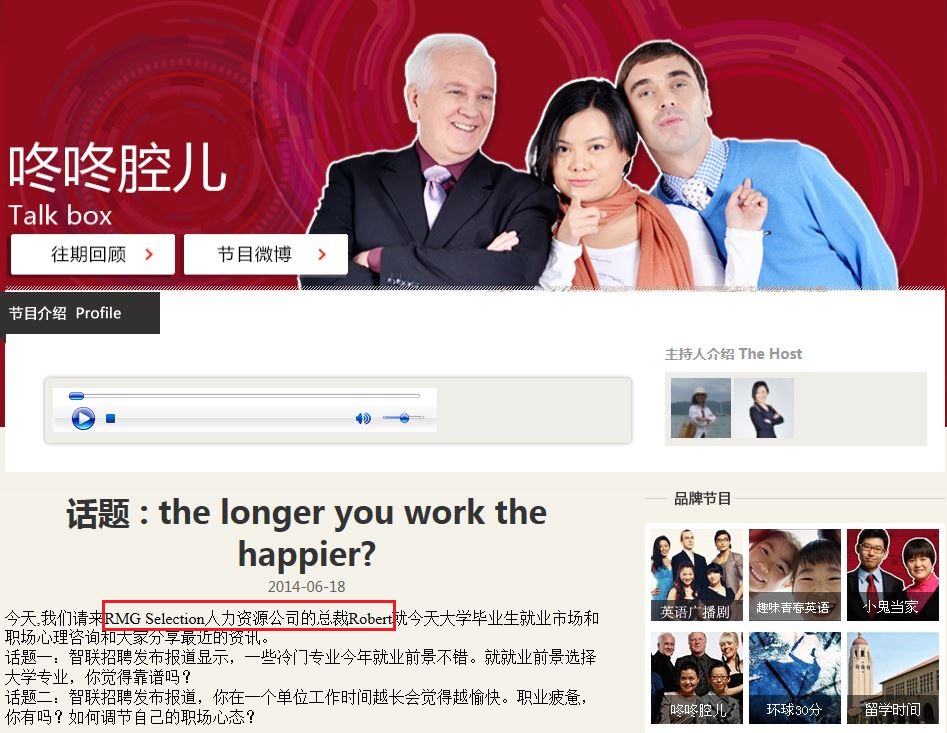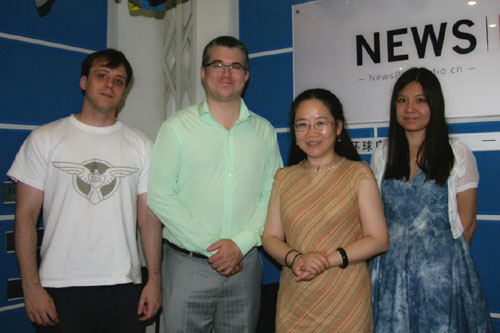Why Am I Drawn to a City of Smog?
By ROBERT PARKINSON
Staring out the window on a rainy Sunday, I have to say that life is a bit boring here. By “here” I am referring not to Beijing, but my quiet hometown in the U.K. This is no longer surprising to me. Recently several journalists interviewed me, asking if the thick smog would cause a massive outflow of expats from China. After reading the dismal reports from foreign news agencies, I decided it’s time to explain how I feel about smog after 10 years in Beijing.
Economic Meltdown?
Although the European economy has been shaky for the past two years, many Europeans still look forward eagerly to a booming economic upswing. These illusions were shattered cruelly in March, when The Guardian reported that the European crisis is far from over. On the contrary, the growing impoverished classes in seven European countries are suffering worse than ever. With this going on, why would expats go back?
On the other hand, with China’s growing prosperity, every foreign entrepreneur knows it is the place to look for profits. International companies only employ efficient, smart and creative people to establish and lead their branch offices in major cities and find out how much they can make on the Chinese market. This means that Beijing is a city full of talented and able expats. Speaking as an expat, business opportunities and elite connections are an important draw to this city, and I’m certainly not the only one that thinks so.
For those at management level, leaving Beijing means forfeiting half of their base salary. Foreign companies want to bring their best people to Beijing and keep them there for years, so they do their best to make life easy for employees in their new habitat. Most companies offer generous expat package plans, including housing funds, private cars and drivers, children’s education, living expense subsidies and pollution compensation for employees who work in China for long periods of time. All these expat benefits might exceed half an expat’s annual base salary. So for a foreign manager, leaving Beijing means lower pay and higher expenses. Would you give that up?
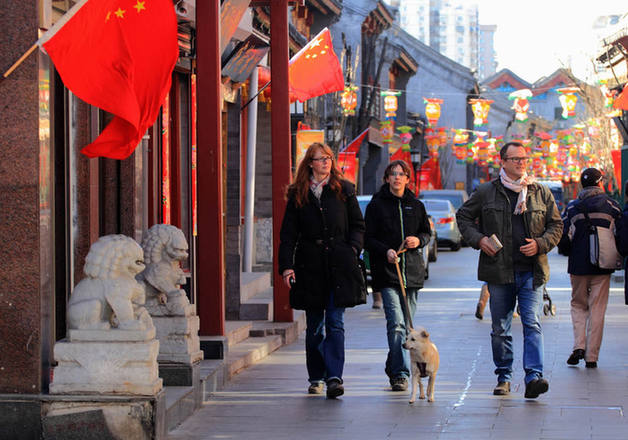
Liulichang Antique Street is a magnet for international tourists.
Witness to a Country’s Epic Changes
In Beijing, “change” is the one thing that stays constant. My job requires me to take frequent business trips to Hong Kong and Shanghai. After 10 years of travel, I can testify that neither city has developed as diversely as Beijing has. Ten years ago, Beijing was a city of shabby buildings, dirty roads, crowded buses, and few bars or malls. However, over the years the skyscrapers grew higher, the subways became modern (and much better than in Paris), and huge shopping malls appeared along wide and clean boulevards.
According to China’s National Bureau of Statistics, Beijing’s Gross Regional Product (see the chart) increased steadily between 2006 and 2012. Secondary and tertiary industries grew by over 50 percent in the same period.
The key factor in assessing a city’s development is the added value of its tertiary industry. Also, government investment in real estate increases every year. China’s achievements over the past decade impress and fascinate me. Beijing has become a brand-new city. I firmly believe that “change” is a key word for every country, city, and company for creating a better future.
Additionally, many expatriates and domestic migrant workers find it difficult to return home after the dynamism of Beijing. I often explain this with the cat allegory: imagine a cat, used to a cozy life at home, accidentally discovering the wonderful outside world. He could not experience anything better. Would he still be willing to stay at home and be a good cat? The answer is probably no. Once attracted to Beijing, people expect to be part of the city.
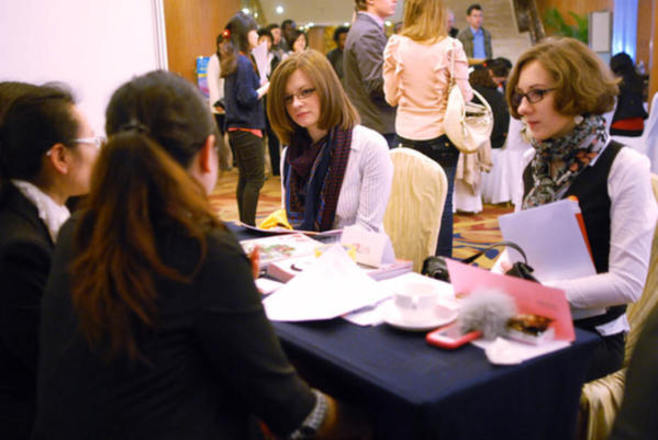
There are job fairs in Beijing all year round. Some of them specifically target expats or foreign companies.
Golden Opportunities for Career Start-ups
A young and energetic Dutch employee has worked in my company for almost two years. When he finished postgraduate studies in Amsterdam University he immediately came to China to look for work. During the interview I asked him why he wanted to work in Beijing. He replied that he regarded the Chinese capital as a place to develop his career path. The answer was simple, but he proved this logic over two years. From an immature recruiter he became a professional team leader who knows the recruiting business and the niche market in and out. Such opportunities are the dream of thousands of young European graduate. Therefore, many young people seek internship experiences in Beijing and Shanghai.
This is evident from the popularity of overseas internship programs in recent years. AIESEC, the biggest student networking organization, does brisk business sending foreign students to do internships in China. The existing and rapid developments of AIESEC allow young people who live outside China to see how career opportunities and development there differ from Europe, Australia, America and other countries.
If they realize how fast career development is in Beijing, then they will probably decide to stay longer. Then the crux becomes businesses and companies’ platforms in China. Fortunately, the good news is that expats are surrounded by many business opportunities and good companies in Beijing. Companies in media and legal industries typically ask their headquartered employees to work in Beijing once or twice a year. Furthermore, sales and marketing disciplines in pharmaceutical and logistic industries are releasing more positions in Beijing for expats. As China gradually becomes an indispensable part of the global economy, I see no reason why young expats would give up a made-in-China experience.
According to the latest A.T. Kearney Global Cities Index, Beijing is now one of the world’s top 10 global cities. This surprises some people. They cannot believe that smoggy, air-polluted Beijing is among the top 10. However, I am not surprised by the big stride Beijing just made. The fast-changing city deserves the trophy.
Air pollution is a problem to be solved by the Chinese government. In April, Chinese Premier Li Keqiang met with visiting German Vice Chancellor and Minister for Economic Affairs and Energy Sigmar Gabriel. They discussed cooperation in developing clean energy, energy conservation and environmental protection technology. This is the latest and best proof of the government’s determination to make Beijing a clean city! In the long term there is a brighter, greener Beijing ahead.
Read the original link at: http://www.chinatoday.com.cn/english/life/2014-06/04/content_622406.htm

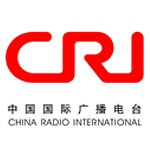
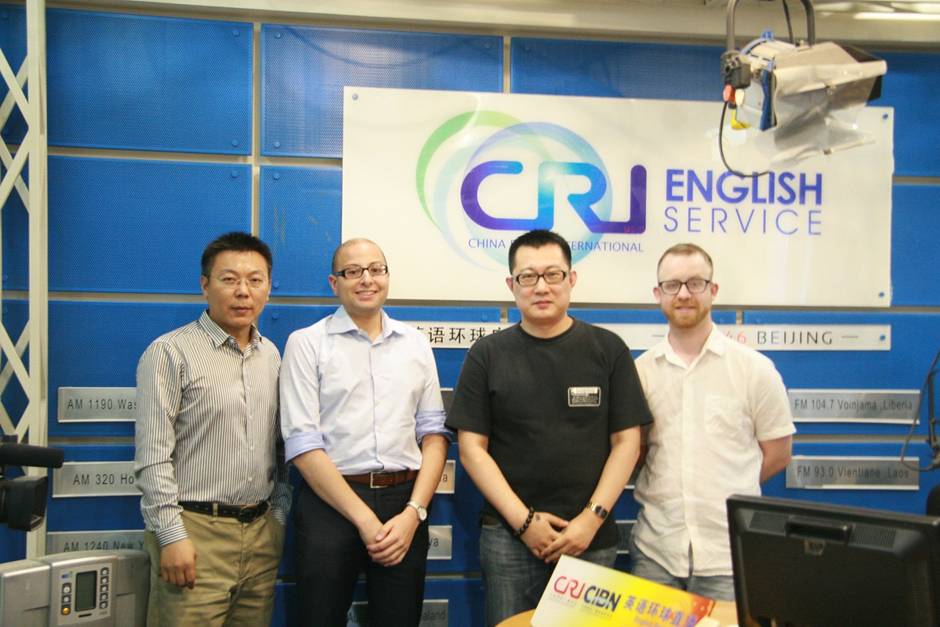
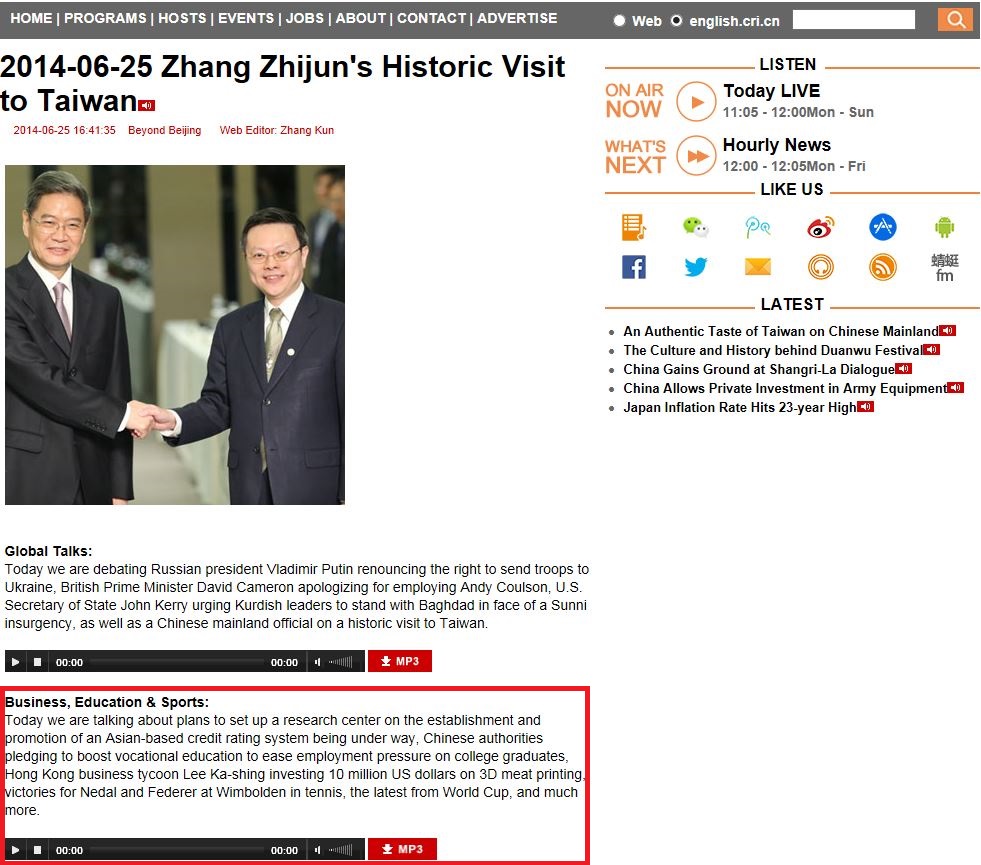 Recently the result of Chinese University Entrance Exam was published. Here comes the hot topics of how to choose good majors in universities? Should students choose majors based on interests or the so-call “good career development” on the later stage? Ruben, Senior Consultant of Logistic Recruitment Team at RMG Selection, is here to answer all students and parents’ questions live! Listen to us by clicking here:
Recently the result of Chinese University Entrance Exam was published. Here comes the hot topics of how to choose good majors in universities? Should students choose majors based on interests or the so-call “good career development” on the later stage? Ruben, Senior Consultant of Logistic Recruitment Team at RMG Selection, is here to answer all students and parents’ questions live! Listen to us by clicking here:
